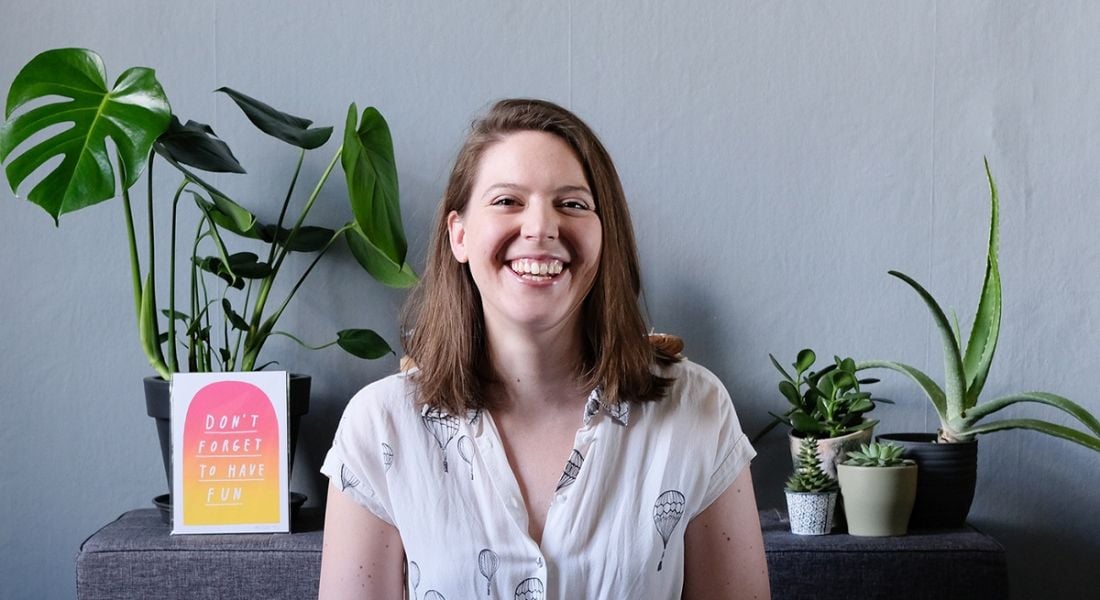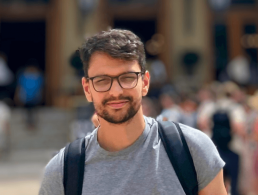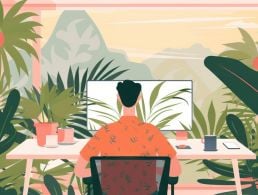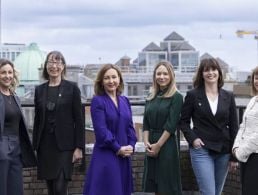Lauren Pritchard, community manager at Viasat Ireland, talks about cultivating engagement, connectivity and culture, particularly in a virtual working world.
Having initially started out in the company as an office manager, Lauren Pritchard’s role at Viasat Ireland has since evolved into that of community manager. Here, she tells us how important her job has been in keeping Viasat employees motivated and connected as they transitioned to working from home in recent weeks.
‘The challenge now is translating the strong community that has been built in the office into the digital world without losing its heart’
– LAUREN PRITCHARD
What is your role within Viasat?
I’m the community manager at the Viasat Europe office in Dublin. The purpose of my role is to promote a culture and community of participation, engagement and inclusion. I support our company’s employer brand, employee retention and internal communications strategies.
Essentially, my role involves community engagement and that includes hosting workshops, inviting external speakers into the office, organising social events, facilities and, at present, a large portion of my role is focusing on internal communications. I am also part of our sports and social team, called the Ents team, and as part of this we are responsible for internal news updates.
If there is such a thing, can you describe a typical day in the job?
I’m inclined to answer that question in a pre-coronavirus, mid-coronavirus and hopefully post-coronavirus context. But the reality is that the value and impact of the function of a community manager, while enhanced in this current environment, hasn’t changed.
The majority of my role involves working with people – whether it be in person or virtually – immersing myself in human interactions that keep people engaged whether that’s supporting operations, people and culture (HR) or marketing.
The tools I use can vary, especially in the context of a 100pc-dispersed working environment, but the purpose remains the same. That said, as with any community of 100-plus people with different asks, goals and opinions, every day is different.
What types of projects do you work on?
I see the purpose of my role as being a super-connector. I’m like a reporter in the field getting the feeling and sentiment on the ground and my role is to translate that into community activities, communications and social impact activities that drive greater engagement.
In terms of the nitty-gritty, I work on internal events with our Ents team made up of employees from across the business. These range from holiday parties to social outreach and corporate social responsibility activities.
I also work on external events, such as meet-ups, that we hold in the office regularly for the broader tech community in Dublin.
My background is in design and photography, which I get to leverage extensively in my role. This includes creating video content with our in-house news team, the development of visual assets and, more recently, creating working-from-home materials and guides to help our employee community, which have been key.
What skills do you use on a daily basis?
People are at the heart of what I do. And when you’ve 100-plus highly skilled and experienced professionals with diversity of thought, then the most important tools in your arsenal become patience, emotional intelligence and prioritisation.
What is the hardest part of your working day?
The hardest part of my working day is not the things I have to do but the things I don’t get to do. You want to support every initiative, every suggestion and every recommendation, but there are limits to every resource; my time, hours in the day and budget. Therefore, you constantly balance the goals of the larger business with the priorities of the local office and leadership team, with the needs and asks of all our community members.
With the current situation of everyone working remotely, this role has become virtual and the importance of ensuring everyone remains positive, engaged and actively participating as a community has heightened. The challenge now is translating the strong community that has been built in the office into the digital world without losing its heart.
Do you have any productivity tips that help you through the working day?
Plan your week and build as much routine into your calendar as possible. You’ll always be busy and you’ll always have work to do, but it’s about doing the things that add the most value to the company.
Keep communicating with your stakeholders to make sure you’re aligned with their objectives and be firm about prioritising things that need to be done first.
When you first started this job, what were you most surprised to learn was important in the role?
It’s not so much one specific aspect of the role that surprised me as being important, but the actual impact and importance of the role itself has taken me by surprise. Specifically, the support and advocacy from the senior leadership team has been great.
Often in technology companies, the softer, less tangible aspects of a company – such as engagement and community – can take a backseat to productivity and output. My biggest and most welcome surprise has been how Viasat has recognised that these are all interrelated.
How has this role changed as this sector has grown and evolved?
When I started, my role was office manager. It was primarily about keeping the lights on. A year later, and my role has expanded to have a more holistic focus on community, communications, employee engagement and working more with the people and culture team to enhance Viasat as a place people want to work.
The community manager role seems to mean different things to different businesses. At Viasat, in addition to the functional aspects of office management, it has really become more about supporting the broader business goals like building our employer brand and keeping our best talent. This will ultimately serve our customers’ best interests.
What do you enjoy most about the job?
The people. The creativity. The diversity.




